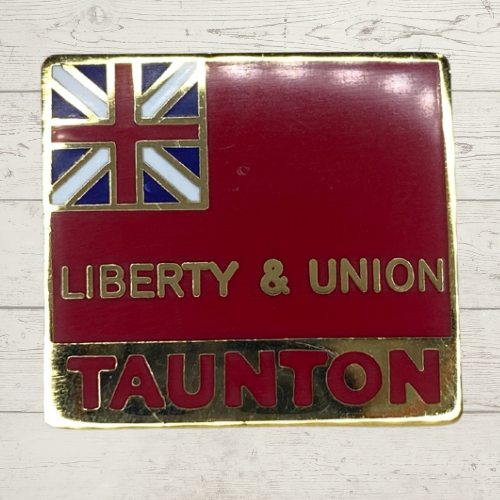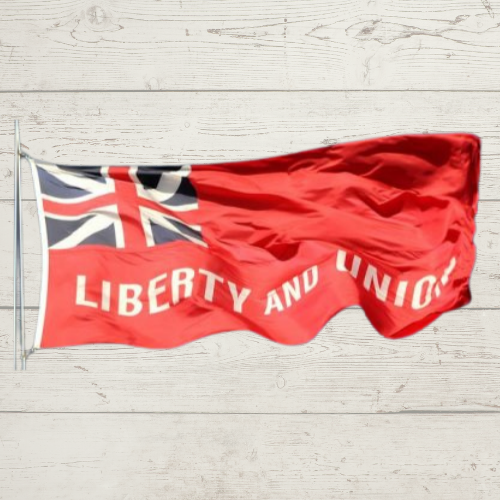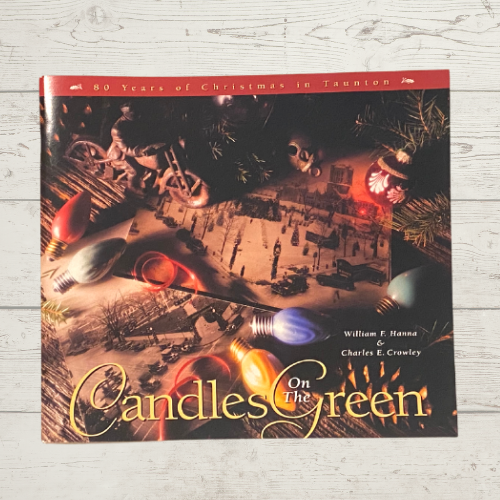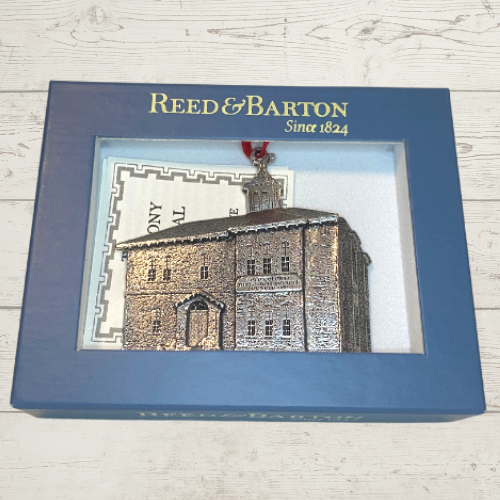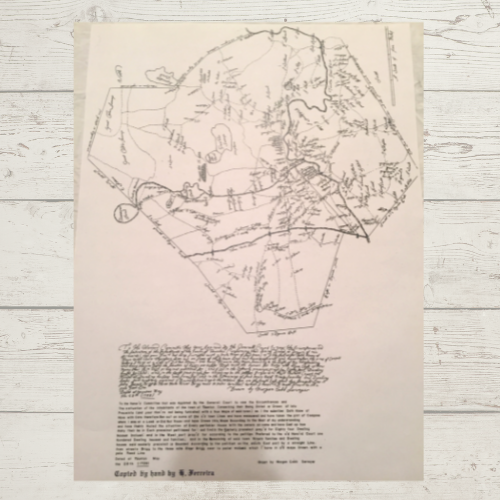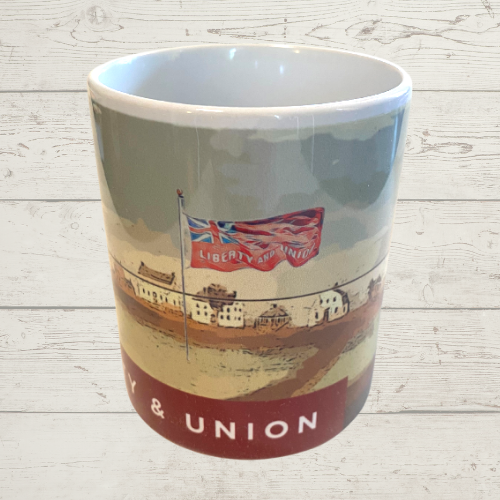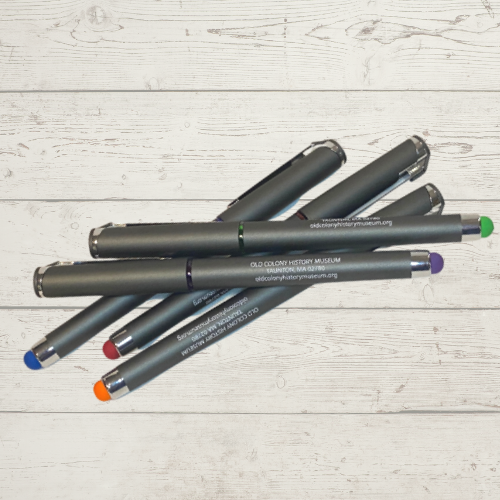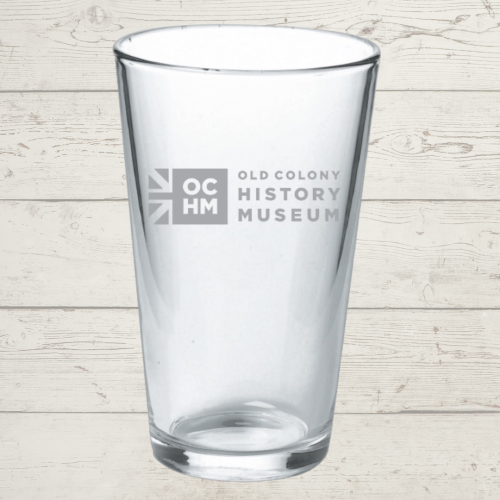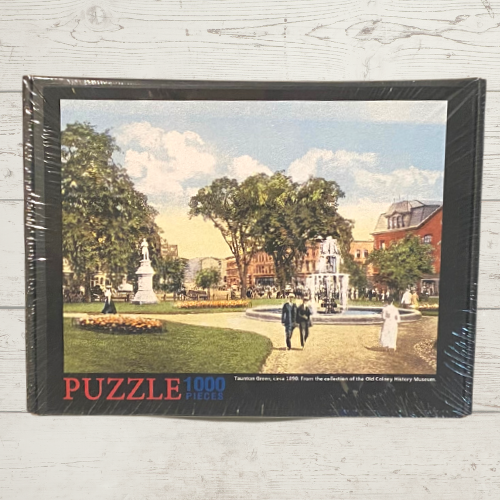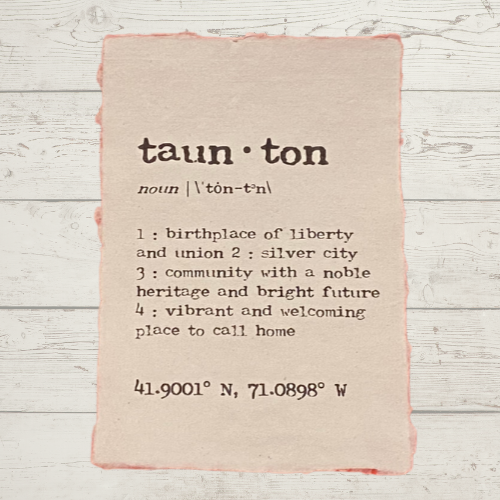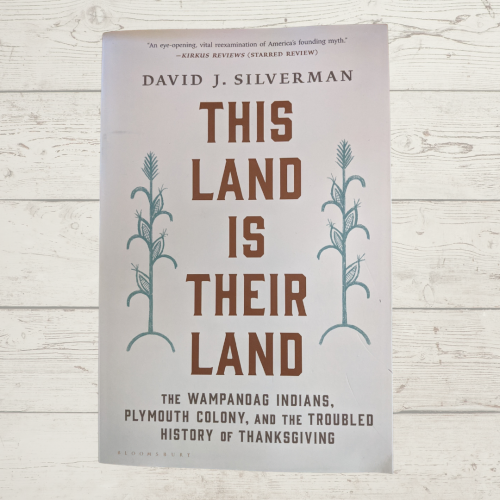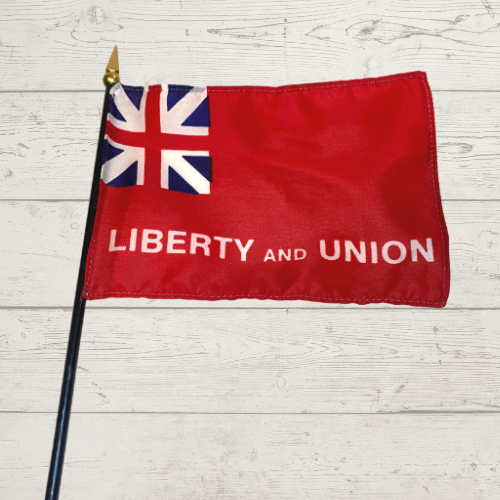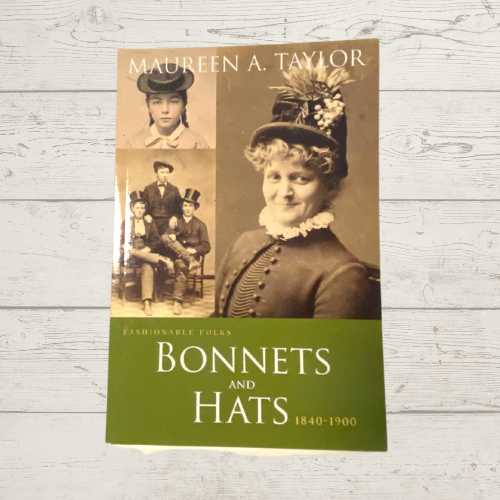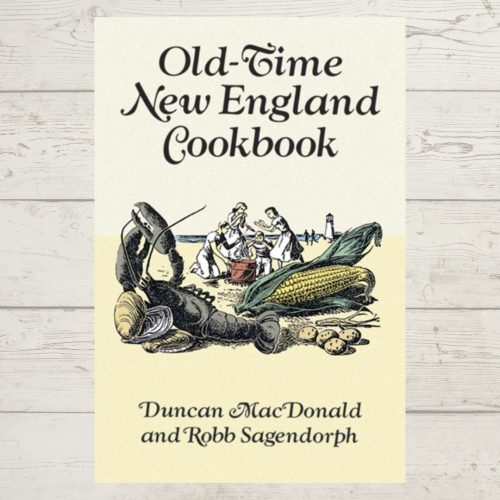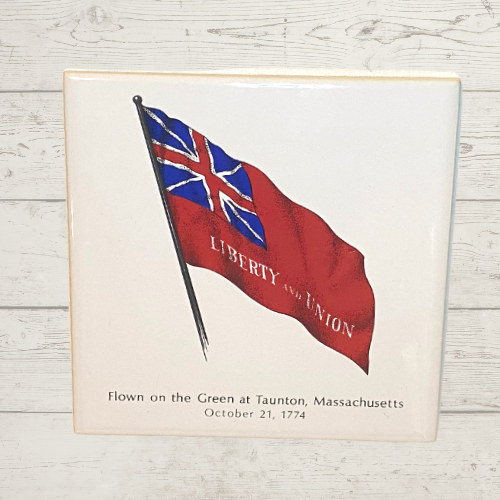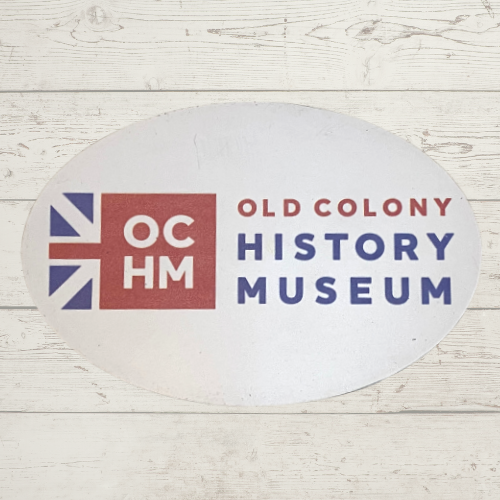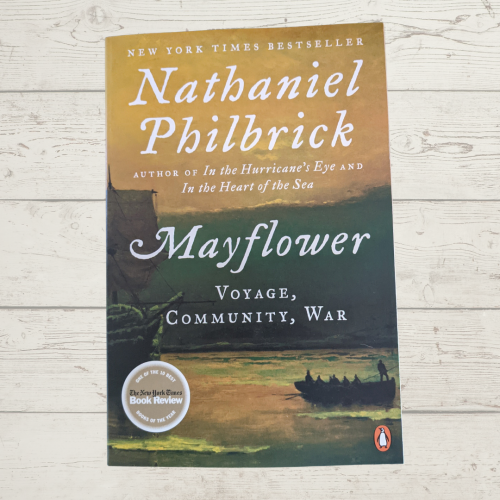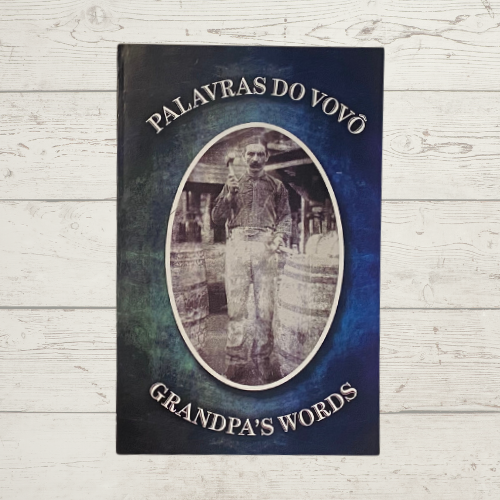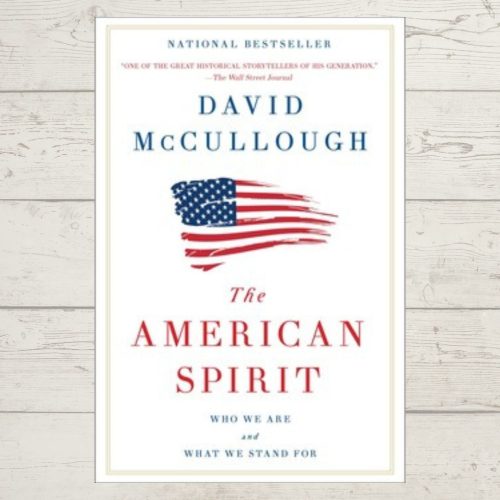- 124 pages, full color, hardcover with dust jacket
- 9 in. tall x 12 in. wide
- High-quality recycled paper
-
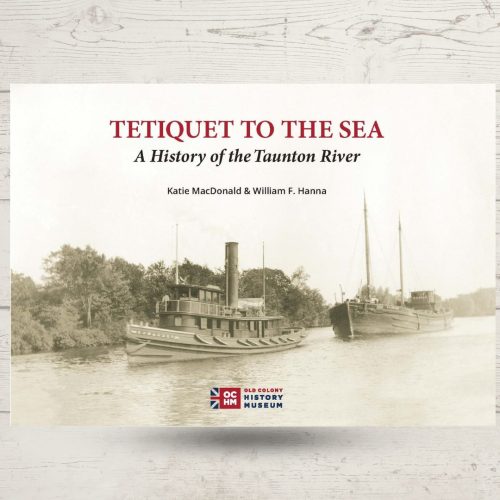 Tetiquet to the Sea: A History of the Taunton River Meticulously researched and beautifully illustrated, this book draws upon manuscripts, printed material, and photographs not only from the Old Colony History Museum's extensive collection, but also from riverside partners including historical organizations, public libraries, local universities, and private holdings. It captures, for the first time in one publication, both the history and present-day vitality of the Taunton River. Product Details:
Tetiquet to the Sea: A History of the Taunton River Meticulously researched and beautifully illustrated, this book draws upon manuscripts, printed material, and photographs not only from the Old Colony History Museum's extensive collection, but also from riverside partners including historical organizations, public libraries, local universities, and private holdings. It captures, for the first time in one publication, both the history and present-day vitality of the Taunton River. Product Details: -
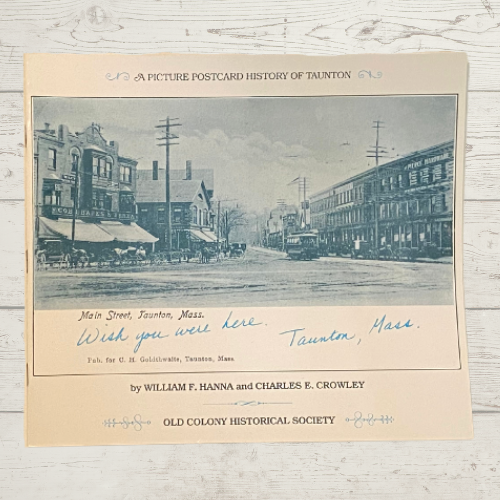 Wish You Were Here: A Picture Postcard History of Tauntonby William F. Hanna and Charles E. Crowley ..."This book presents approximately 100 post card photographs of Taunton. Many were made between 1904 and 1910, and several of these were mass produced in Germany at the behest of Taunton merchants who sold them in their stationary, drug, or dry goods store. It amazes us that so many different scenes were photographs within such a brief period of time..."
Wish You Were Here: A Picture Postcard History of Tauntonby William F. Hanna and Charles E. Crowley ..."This book presents approximately 100 post card photographs of Taunton. Many were made between 1904 and 1910, and several of these were mass produced in Germany at the behest of Taunton merchants who sold them in their stationary, drug, or dry goods store. It amazes us that so many different scenes were photographs within such a brief period of time..." -
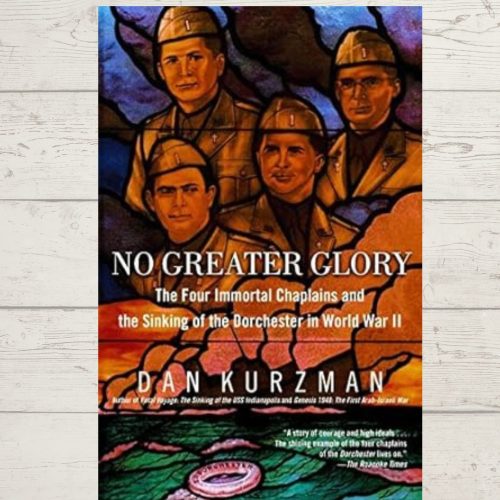 The sinking of the Dorchester in the icy waters off Greenland shortly after midnight on February 3, 1942, was one of the worst sea disasters of World War II. It was also the occasion of an astounding feat of heroism—and faith. As water gushed through a hole made by a German torpedo, four chaplains—members of different faiths but linked by bonds of friendship and devotion—moved quietly among the men onboard. Preaching bravery, the chaplains distributed life jackets, including their own. In the end, these four men went down with the ship, their arms linked in spiritual solidarity, their voices raised in prayer. In this spellbinding narrative, award-winning author and journalist Dan Kurzman tells the story of these heroes and the faith—in God and in country—that they shared. They were about as different as four American clergymen could be. George Lansing Fox (Methodist), wounded and decorated in World War I, loved his family and his Vermont congregation—yet he re-enlisted as soon as he heard about Pearl Harbor. Rabbi Alex Goode was an athlete, an intellectual, and an adoring new father—yet he too knew, the day Pearl Harbor was bombed, that he would serve. Clark Poling (Dutch Reformed), the son a famous radio evangelist, left for war begging his father to pray that he would never be a coward. Father John Washington (Catholic), a scrappy Irish street fighter, had dedicated himself to the church after a childhood brush with death. Chance brought the chaplains together at a Massachusetts training camp (Camp Myles Standish in Taunton), but each was convinced that God had a reason for placing them together aboard the Dorchester. Drawing on extensive interviews with the chaplains’ families and the crews of both the Dorchester and the German submarine that fired the fatal torpedo, Kurzman re-creates the intimate circumstances and great historic events that culminated in that terrible night. The final hours unfold with the electrifying clarity of nightmare—the chaplains taking charge of the dwindling supply of life jackets, the panic of the crew, the overcrowded lifeboats, the prayers that ring out over the chaos, and the tight circle that the four chaplains form as the inevitable draws near. In No Greater Glory, Dan Kurzman tells how four extraordinary men left their mark on a single night of war—and forever changed the lives of those they saved. Riveting and inspiring, this is a true story of heroism, of goodness in the face of disaster, and of faith that transfigures even the horror of war.
The sinking of the Dorchester in the icy waters off Greenland shortly after midnight on February 3, 1942, was one of the worst sea disasters of World War II. It was also the occasion of an astounding feat of heroism—and faith. As water gushed through a hole made by a German torpedo, four chaplains—members of different faiths but linked by bonds of friendship and devotion—moved quietly among the men onboard. Preaching bravery, the chaplains distributed life jackets, including their own. In the end, these four men went down with the ship, their arms linked in spiritual solidarity, their voices raised in prayer. In this spellbinding narrative, award-winning author and journalist Dan Kurzman tells the story of these heroes and the faith—in God and in country—that they shared. They were about as different as four American clergymen could be. George Lansing Fox (Methodist), wounded and decorated in World War I, loved his family and his Vermont congregation—yet he re-enlisted as soon as he heard about Pearl Harbor. Rabbi Alex Goode was an athlete, an intellectual, and an adoring new father—yet he too knew, the day Pearl Harbor was bombed, that he would serve. Clark Poling (Dutch Reformed), the son a famous radio evangelist, left for war begging his father to pray that he would never be a coward. Father John Washington (Catholic), a scrappy Irish street fighter, had dedicated himself to the church after a childhood brush with death. Chance brought the chaplains together at a Massachusetts training camp (Camp Myles Standish in Taunton), but each was convinced that God had a reason for placing them together aboard the Dorchester. Drawing on extensive interviews with the chaplains’ families and the crews of both the Dorchester and the German submarine that fired the fatal torpedo, Kurzman re-creates the intimate circumstances and great historic events that culminated in that terrible night. The final hours unfold with the electrifying clarity of nightmare—the chaplains taking charge of the dwindling supply of life jackets, the panic of the crew, the overcrowded lifeboats, the prayers that ring out over the chaos, and the tight circle that the four chaplains form as the inevitable draws near. In No Greater Glory, Dan Kurzman tells how four extraordinary men left their mark on a single night of war—and forever changed the lives of those they saved. Riveting and inspiring, this is a true story of heroism, of goodness in the face of disaster, and of faith that transfigures even the horror of war.



